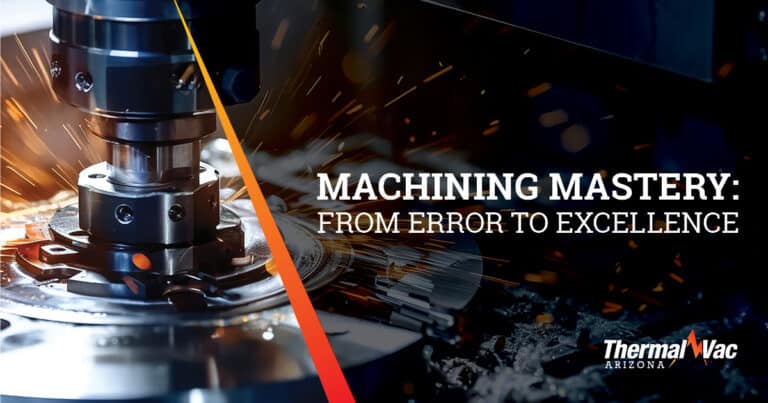In the world of durable products manufacturing, the challenges are real. Producing metal components that withstand the test of time and shine in quality is an absolute must. Even the tiniest glitch in the machining process can lead to a world of pain that includes costly defects, compromised product integrity, and heaven forbid, a one-way ticket into a product liability lawsuit.
In the grand scheme, there’s zero room for error when it comes to crafting your metal components. We’re talking about precision machining—the art of shaping raw materials into specific dimensions and shapes with tolerances squeezed so tight they make you wipe tears from your eyes. Tight tolerances aren’t just a step in manufacturing; they’re the holy grail.
The Importance of Precision Machining
In an age where nothing less than excellence is expected, precision machining is the key to ensuring your products don’t only meet stringent quality standards but exceed them. It’s no exaggeration to say any deviation from these specifications can be catastrophic.
In industries like aerospace, automotive, and medical device implants, product components are the backbone of safety and performance. Even the slightest deviation from the engineering specs is a gateway to disaster. No organization wants to be responsible for compromising safety or causing loss of life. It’s nonnegotiable to invest in the right machining techniques and partner with experts who live and breathe the highest quality standards.
Machining Techniques Matter
Getting down to the brass tacks—metal machining isn’t a one-size-fits-all deal. It’s a diverse world with a variety of specialized techniques like turning, milling, drilling, and grinding. Each method comes with its own set of challenges and demands that you don’t throw a dart at and hope for the best. The technique must match the specific application’s demands. There’s no guessing game here, and factors like material type, parts geometry, and desired surface finish are the guiding principles.
What to Look for When Choosing a Metal Machining Partner
Choosing a metal machining partner should be like selecting a lifetime partner. You want someone who has your back and who knows what you need inside and out. Follow this checklist and you can’t go wrong:
- Experience and Expertise: Your partner should have machinists, operators, and engineers who not only talk the talk but walk the walk. Specialized vertical industry experience is the cherry on top.
- Advanced Technology: Cutting-edge CNC machines and state-of-the-art equipment are the name of the game. Precision isn’t a buzzword; it’s a way of life.
- Quality Assurance: If quality isn’t at the heart of their operations, run away fast. Rigorous inspections and adherence to the latest ISO 9001 standards should be nonnegotiable.
- Versatile Capacity and Material Options: Your partner should be capable of handling an array of materials, from the run-of-the-mill metals to the exotic alloys. And whether it’s a small batch or a grand production, they should have the muscle for it.
- Cost Efficiency: Efficiency is about saving time and your hard-won dollars. A partner who minimizes waste and streamlines production is the one you want to ante up with.
So here’s the bottom line: Precision machining is the lifeline of manufacturing. When you partner with an expert in metal machining, there’s no room for error. Choosing the right techniques and a supportive partner can be the difference between producing mediocre products and the mind-blowing products your customers crave. Before you start machining, talk to us. Bring us into your production process on day one, and we’ll make the process a cakewalk.
